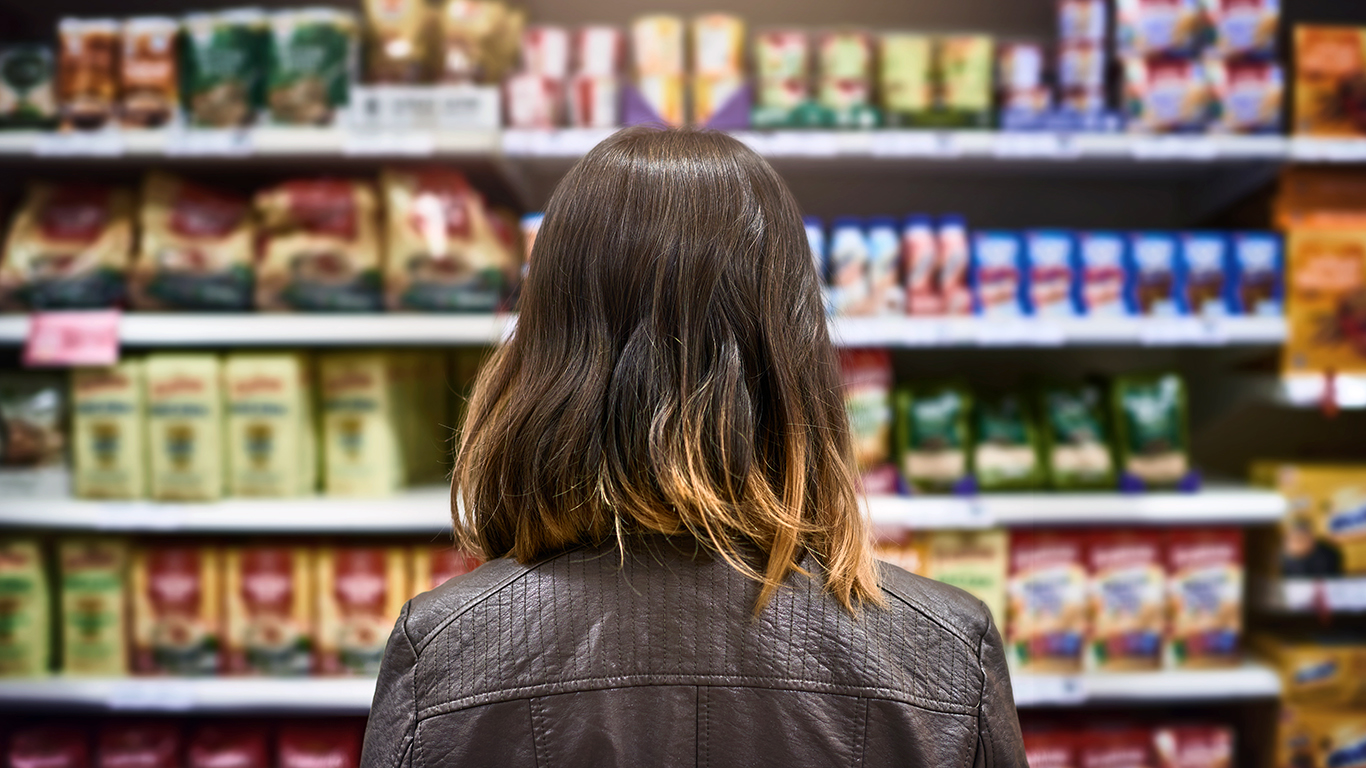

Losing weight is a very common goal year-round. And while eating healthier foods, avoiding junk and fatty foods, and being more physically active sounds simple, the reality is much more complex. It’s frustrating when you believe you have been doing everything right not to see the scale budge. What could be wrong? Though the reasons can be many, the answer may also be in what you’re eating.
Eating a balanced diet is key, but you have to know which foods have hidden ingredients you want to avoid. Not all foods and rinks are created equal, and many of them you only think are healthy when, in reality, they wreak havoc on your body.
The biggest enemy to your diet is overconsumption of calories, particularly from sugar, processed carbohydrates, and fried foods, according to San Antonio clinical nutritionist Sarah Treat. People are very often unaware of their exact calorie intake, and this is their biggest mistake when trying to lose weight, she explained.
Ultimately, when you’re trying to lose weight, you need a calorie deficit, said Jill Maher, a nutrition health coach in Scottsdale, Arizona. You have to burn more calories than you consume. “But you also want to avoid artificial ingredients or you may not be as successful as someone eating whole foods,” she added.
“Something I constantly have to remind my clients is that carbohydrates are not bad,” Gabriela Rivera, a nutritionist practicing with clinical nutritionist Kay Spears in San Antonio, Texas. “Especially my weight loss clients, they seem to be scared to eat a sweet potato or get intimidated when going out to eat.”
Treat agrees. “Fruits and vegetables are carbohydrates, and are not bad for you. They are essential for good health, actually.” Many of her clients, she said, are also “afraid” of carbs. “I have to remind them of the right ones.”
Carbohydrates are an essential macronutrient and are needed for fuel — they are needed just like protein and fats. But when eaten excessively, or prepared a certain way (read fried), they can cause weight gain, Rivera added.
To compile a list of 17 “healthy” foods that are actually destroying your diet, 24/7 Tempo consulted several registered dietitians and clinical nutritionists specializing in weight-loss programs and health coaching.
Click here to read about ‘Healthy’ foods that are actually ruining your diet.
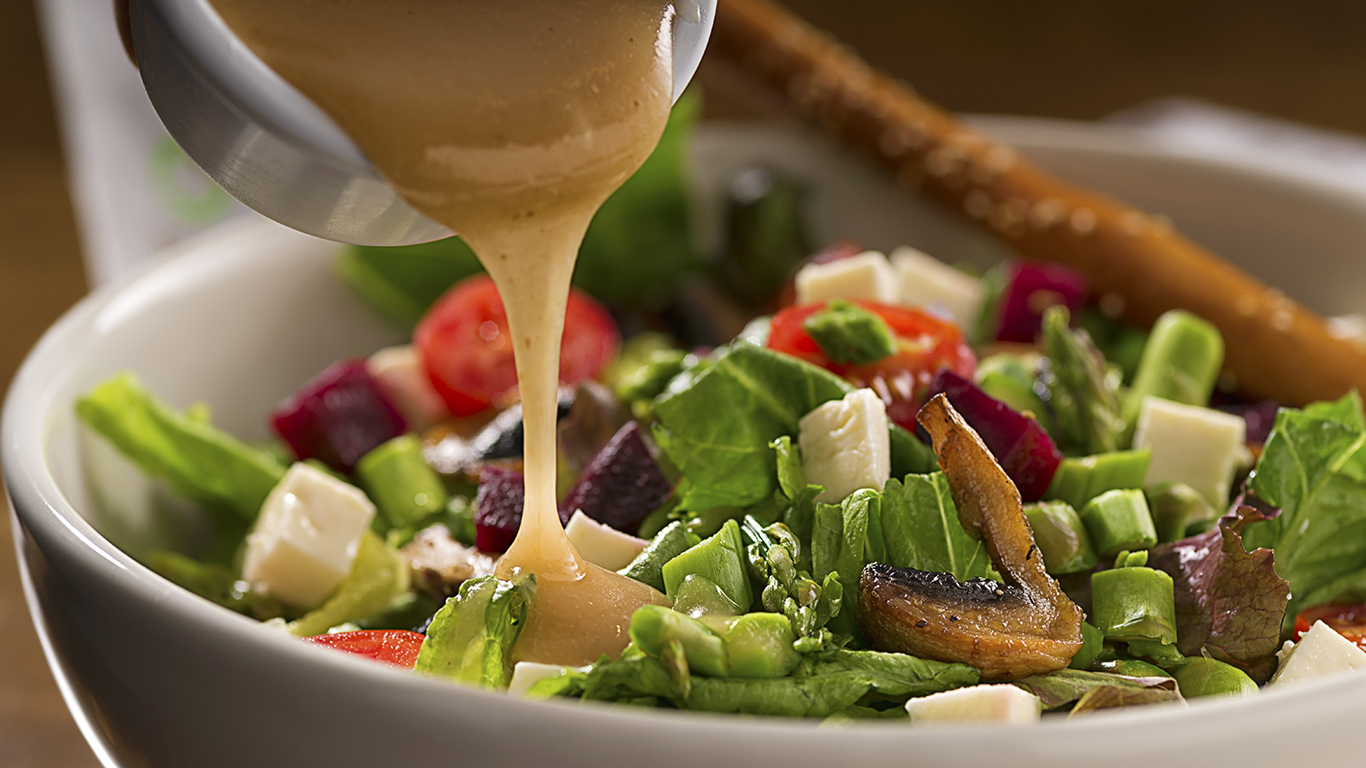
1. Salad dressing
“Store bought salad dressings are often hard to pick when trying to lose weight,” Rivera said. The problem with them is that they can be very high in calories. “I always recommend making at-home salad dressings, but if I had to recommend a specific store-bought dressing I would [recommend] a yogurt-based dressing.”
[in-text-ad]
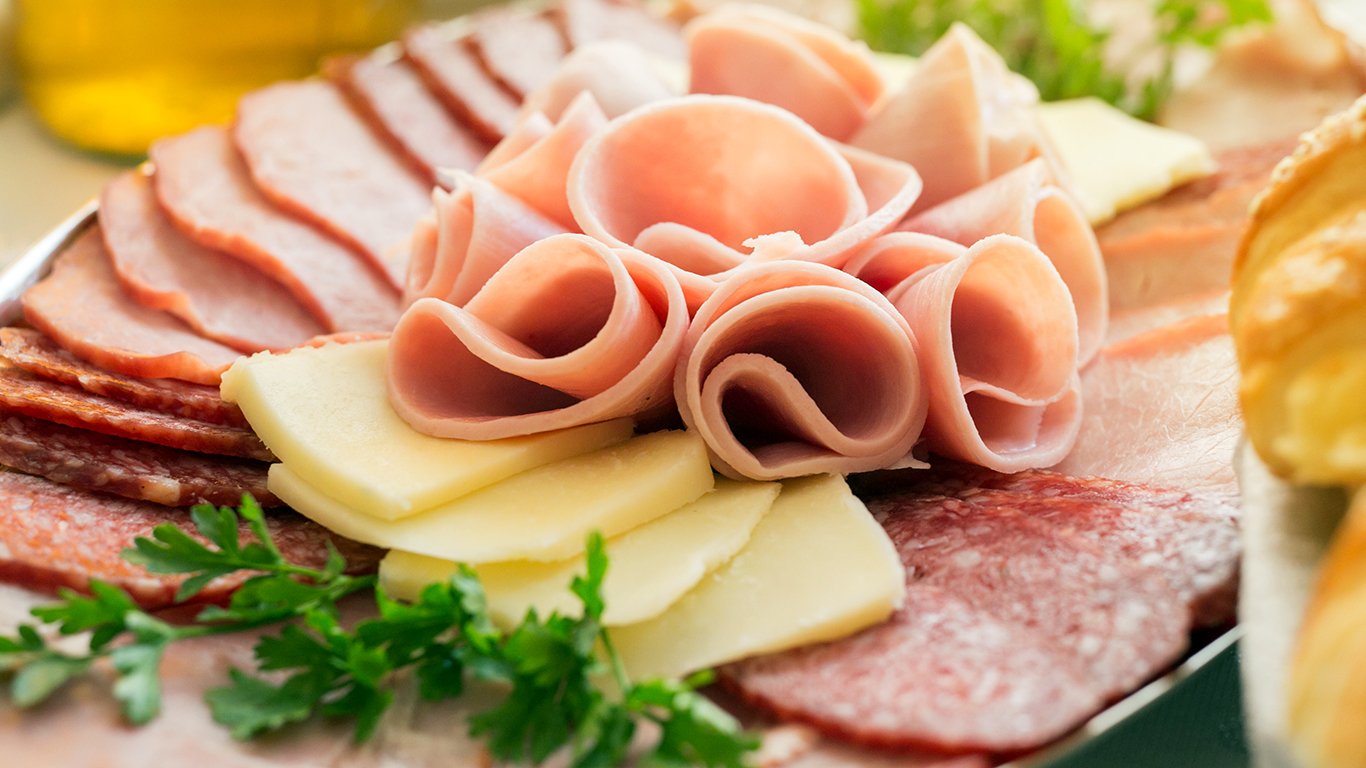
2. Deli meats
“Deli meats are usually not ideal for someone who is trying to lose weight because of [their] high sodium content,” Rivera said. Consumption of high sodium can cause water retention and could cause frustration for the person who doesn’t see the scale moving, she explained. Research has shown that high intake of sodium over time can increase the risk for obesity. In one study, consuming an extra gram of salt each day was associated with an increased risk of obesity in children by 28%. Another study found a link between sodium and more body fat in younger adults, but not in people over 65.
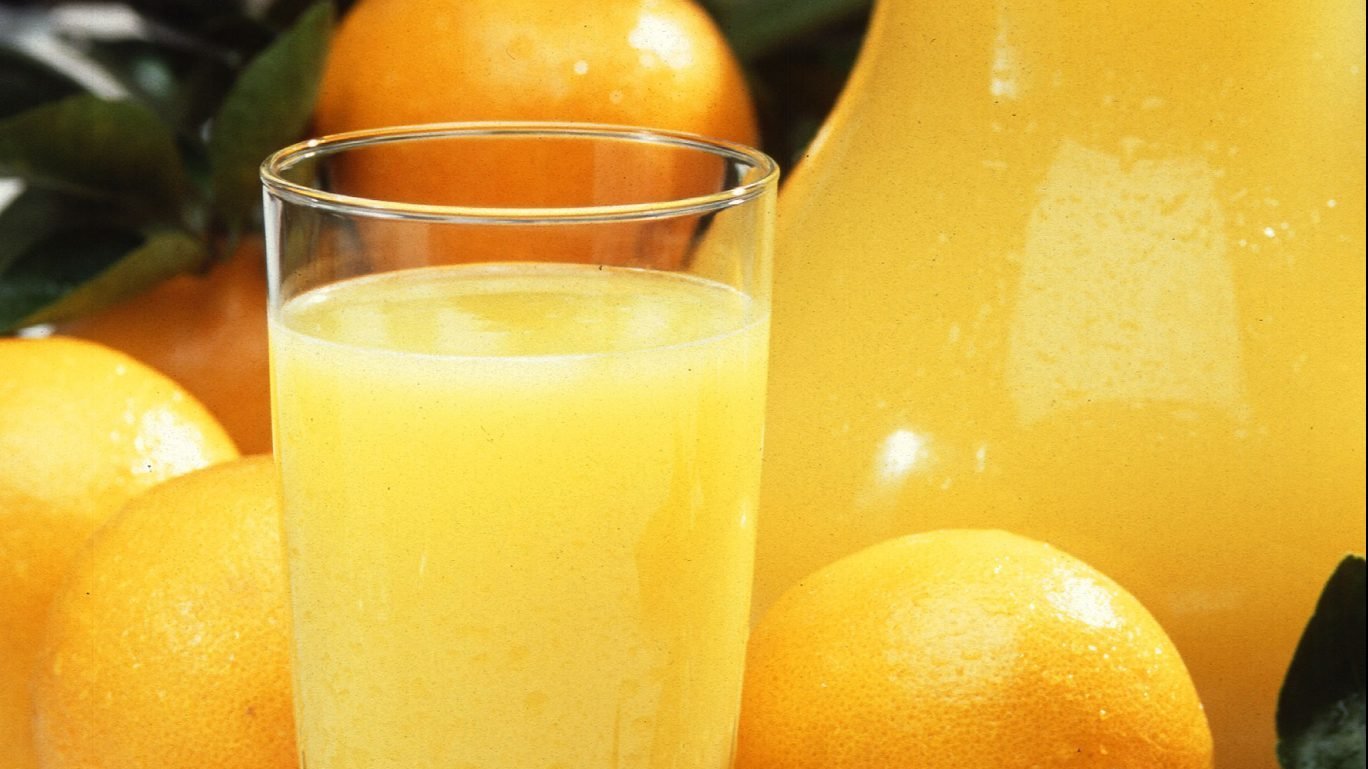
3. Fruit juice
Fruit juice isn’t ideal for someone trying to lose weight because of its added sugar, Rivera explained. “If the nutrition label is misread, a lot more calories can be consumed without knowing.” Added sugar is the No. 1 ingredient Rivera always recommends her clients to stay away from “[b]ecause it is highly addictive and at times may be a trigger ingredient to [binge on] other foods.” Make sure these foods are not among the unhealthiest items in fast food restaurants.
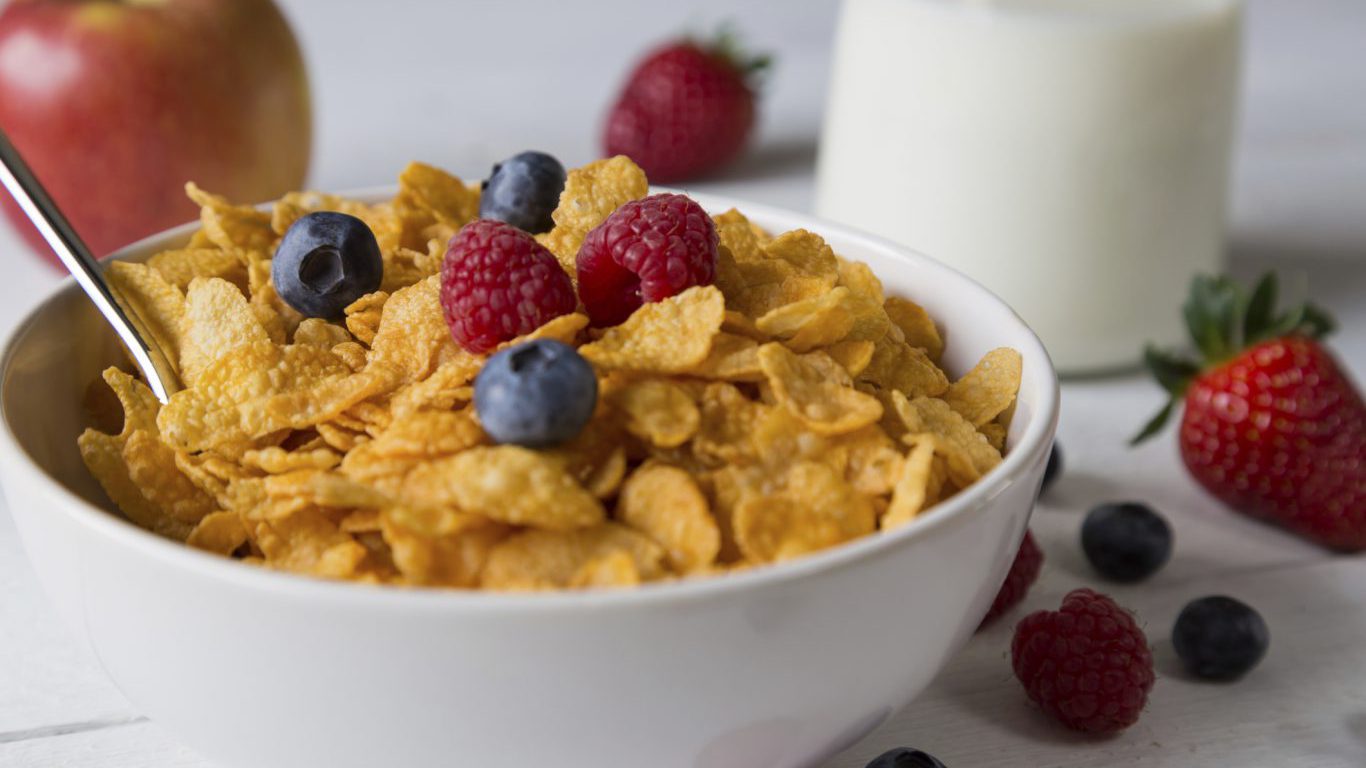
4. Cereal
“For all of my weight loss clients I recommend not buying cereals for the simple fact that most have high sugar content,” Rivera said. When sugar is consumed, dopamine (a chemical released in the brain that helps regulate learning and emotional responses among other things) is released. “Research shows that sugar is just as addictive as cocaine,” Rivera added. Though this claim is contested among scientists, high consumption of sugar can increase the risk of health issues such as obesity and diabetes. Also, calories from sugar can add up quickly if a person is not mindful of serving sizes, she noted. There are healthier versions of old school snacks you can choose.
[in-text-ad-2]
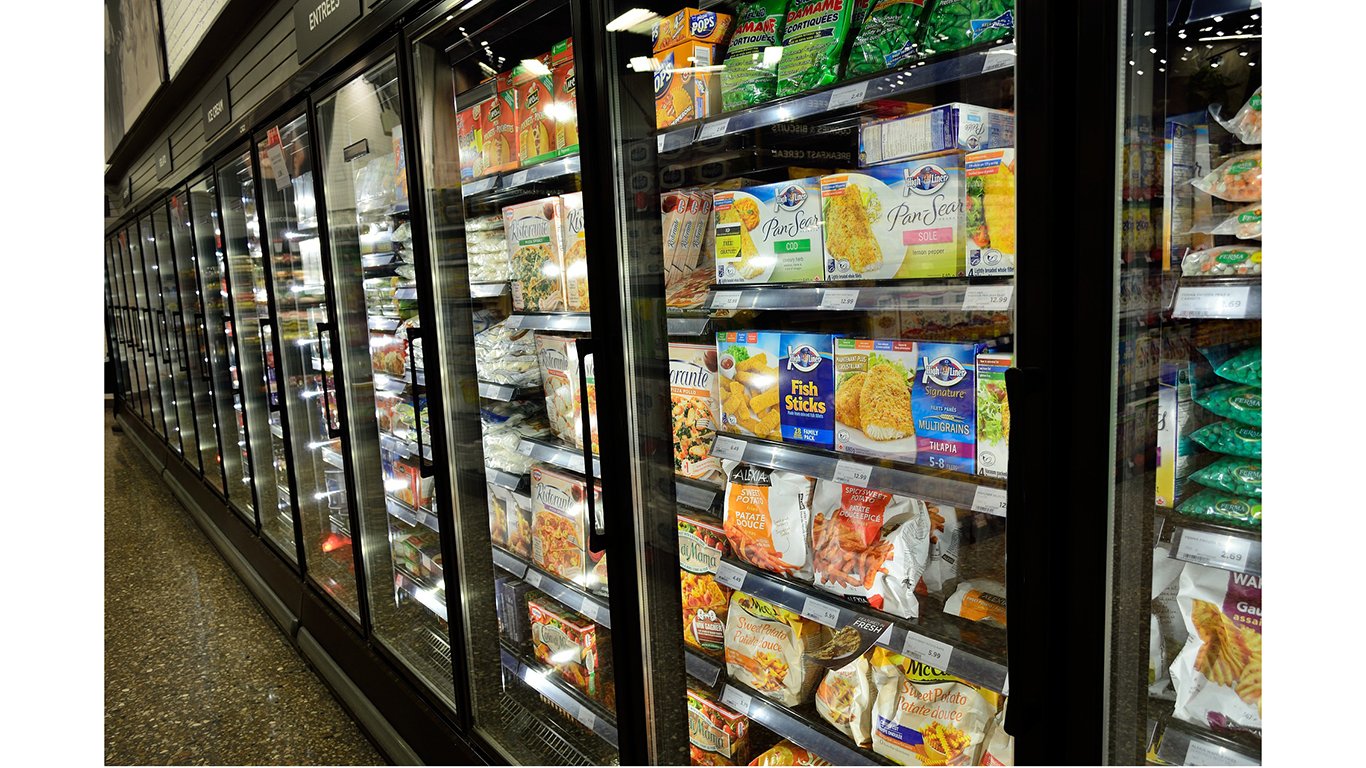
5. Frozen foods
“Frozen foods are very convenient; however, [they] are usually packed with high amounts of sodium for preservation,” Rivera said. “I recommend my weight-loss clients to opt of no salt added frozen veggies or no sugar added frozen fruits.” Everything else would not be recommended for someone in a weight loss phase, she noted.
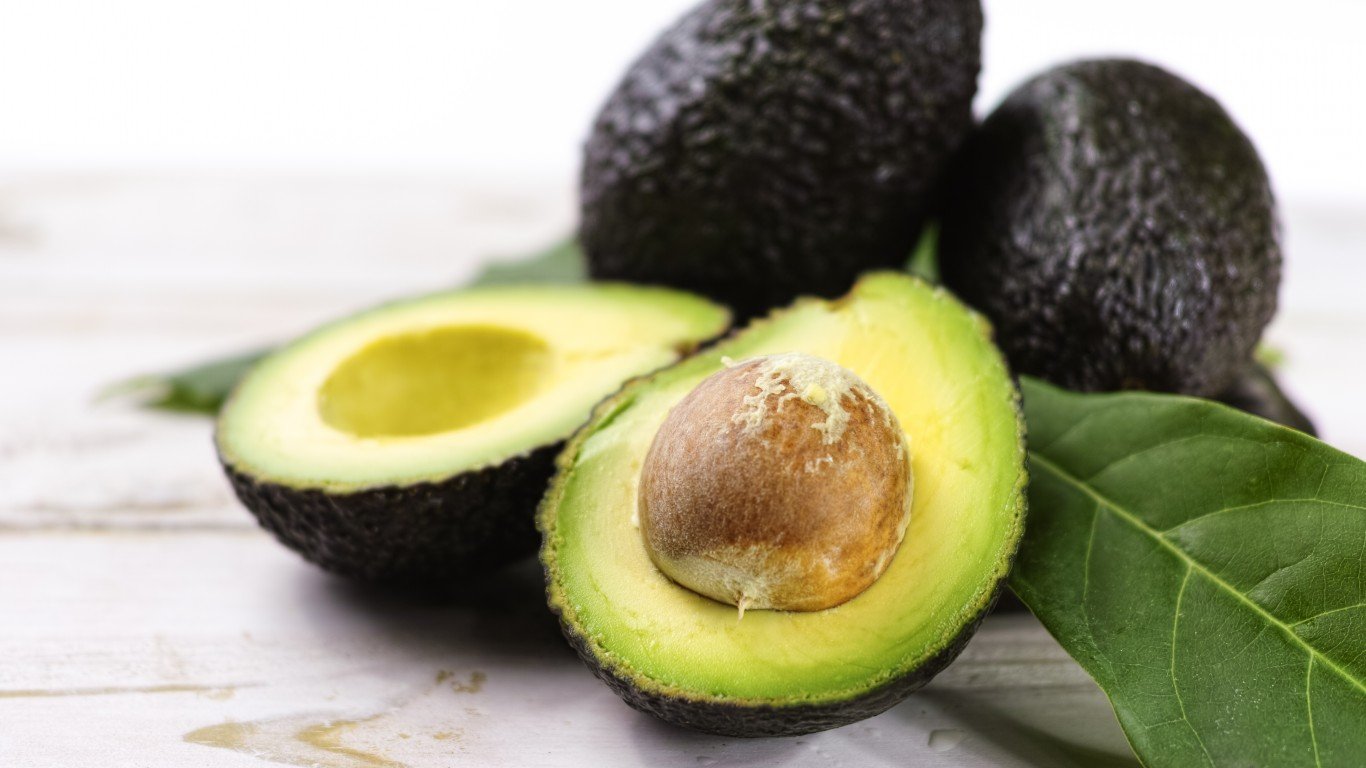
6. Avocado
Avocados are famous for being rich in essential omega-3 fatty acids, which can promote brain and heart health and may help lower the risk of certain cancers and chronic conditions such as arthritis. Avocados certainly are a healthy fruit, but they are also high in calories. “And you can certainly overeat on healthy foods,” Maher said. They are not bad for you, but they provide a lot of energy through calories, which is not what you want when trying to lose weight, she explained. On more about weight loss, these are the best ways to keep the weight off.
[in-text-ad]
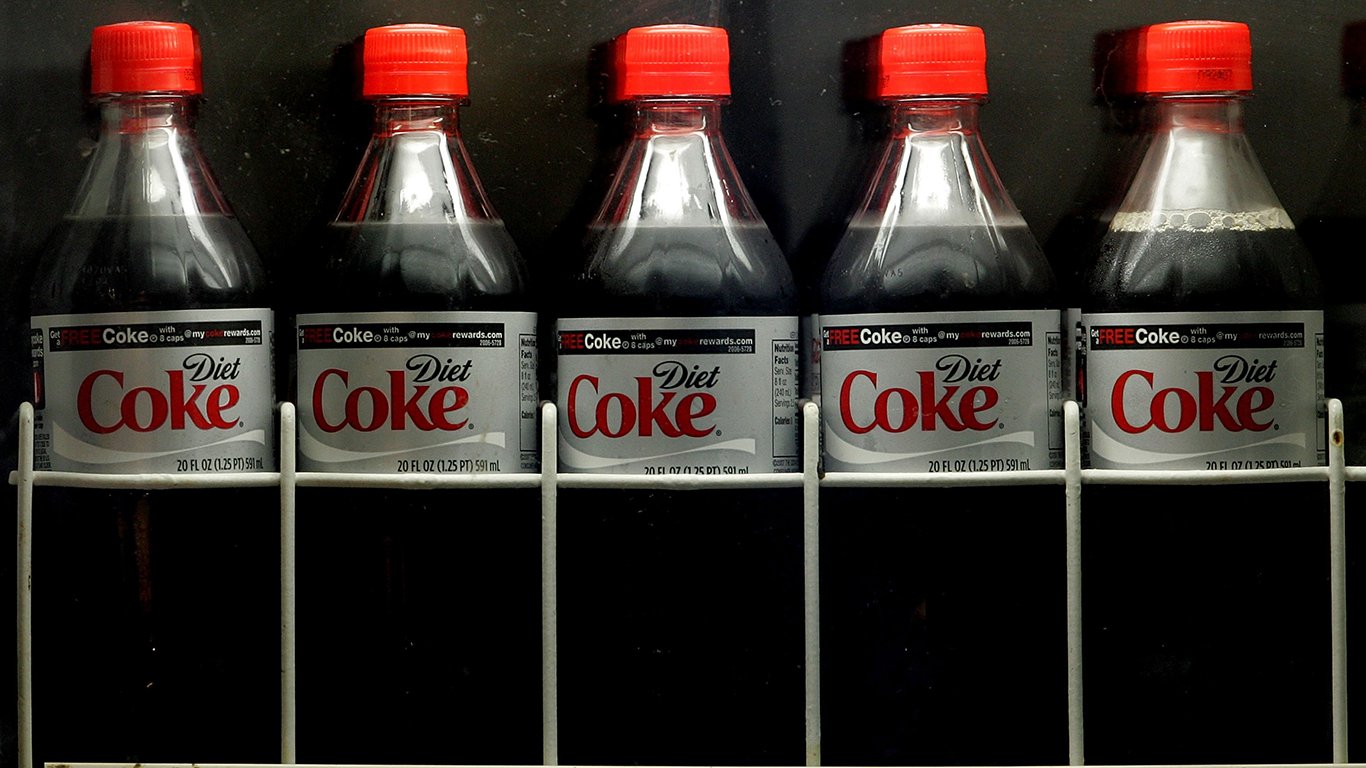
7. Diet foods
While you might think diet foods can help you lose weight, the opposite might be true. Take diet fruit yogurt, for example, Maher said. Such yogurts have a lot of dyes and artificial sweeteners to make up for the taste and sugar that have been lost during processing. Such artificial ingredients make you crave sugar more and more, she added. Because the brain is denied the energy it expects from the sweetness, it may increase the appetite for calorie-rich food in the future. Sweet cravings, and increased appetite for calorie-rich food, ensue. This applies to diet soda, too — and these are at least 10 ways drinking diet soda could be killing you.
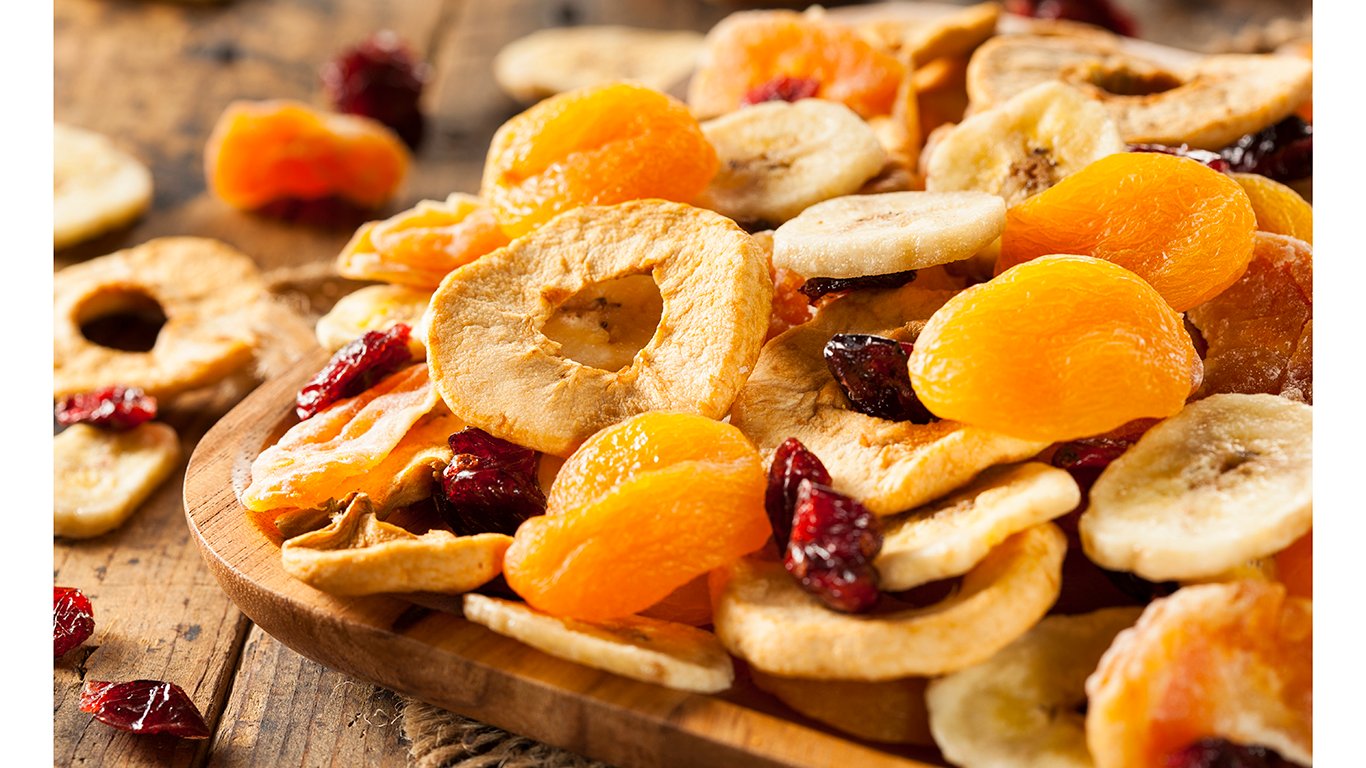
8. Dried fruit
Though fruits have natural sugars, dried fruit often has added sugar, Maher said. Theoretically, there are fewer calories in a dried fruit compared with a fresh fruit, but there may be significantly more sugar — and you’re missing on the water content that makes you feel fuller, she noted. You can easily overeat because of their small size and lose the calorie benefit. Most dried fruits, which are a more concentrated source of nutrients, contain more than 50% sugar. High added sugar consumption has been linked to obesity. (These are the states with the highest obesity rates.)
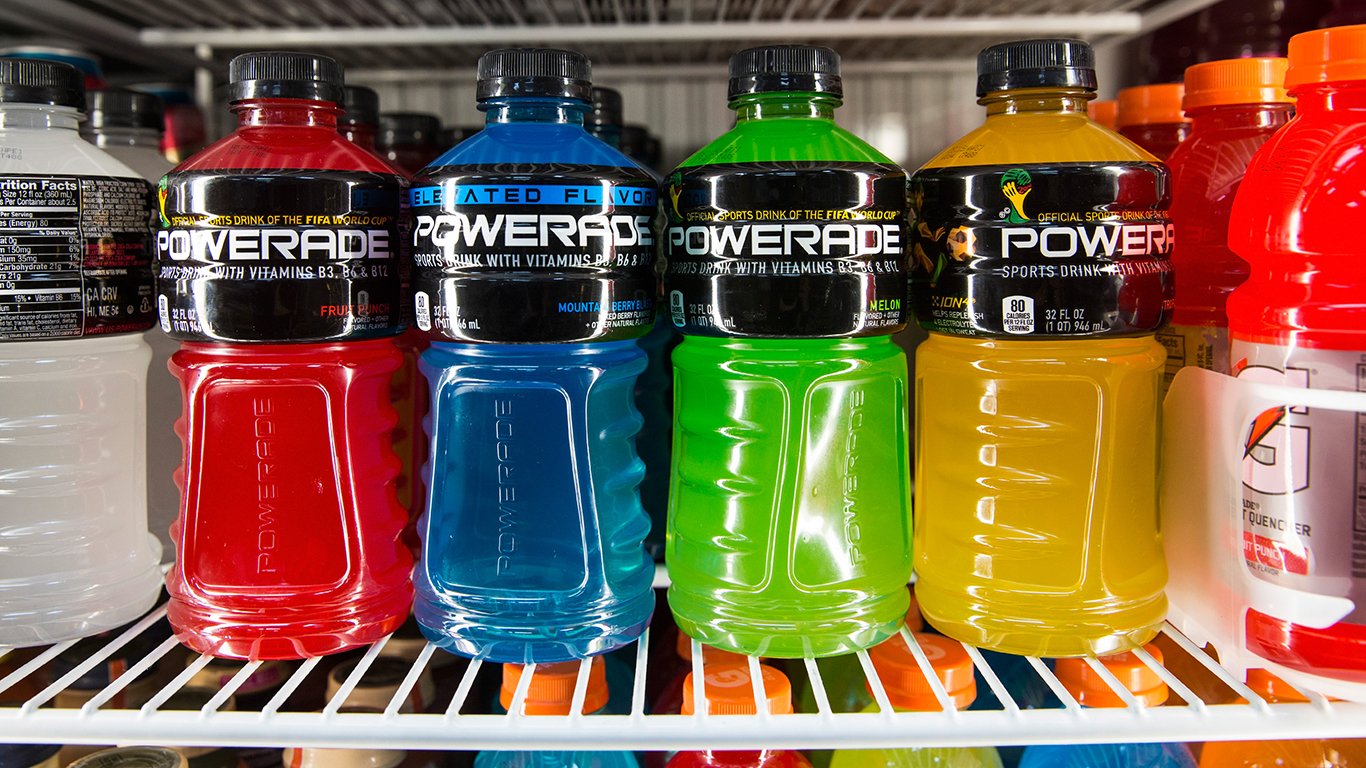
9. Sports drinks
A single sports drink can have as many as five teaspoons of sugar and a total of 90 calories. Experts at the Nutrition Source and the Department of Nutrition at Harvard School of Public Health advise that you only drink those “infrequently and sparingly, if at all.”
[in-text-ad-2]
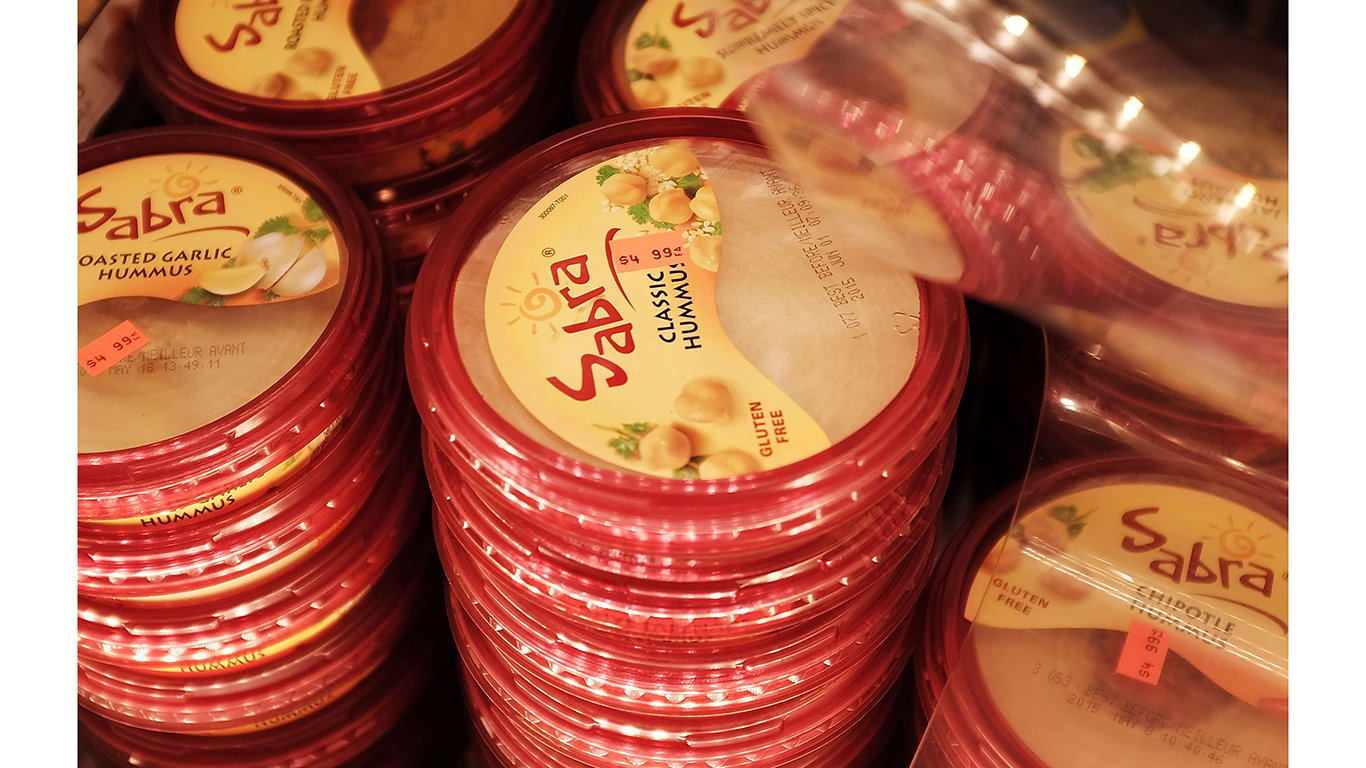
10. Hummus
Hummus is by all means a healthy snack, as long as you watch your portions, according to Donovan Maycock, a nutritionist at Perfect Solutions, a weight-loss center in San Antonio, Texas. It’s also important that the hummus is made with olive oil rather than canola oil or some other kind that is not as healthy, according to Maycock. Canola oil is generally considered safe and contains high amounts of healthy fat, but there are some concerns that it turns rancid when exposed to heat in the production process, destroying the omega-3s and possibly even creating trans fats. This is also what makes certain items in fast-food chains the absolute unhealthiest you can eat.
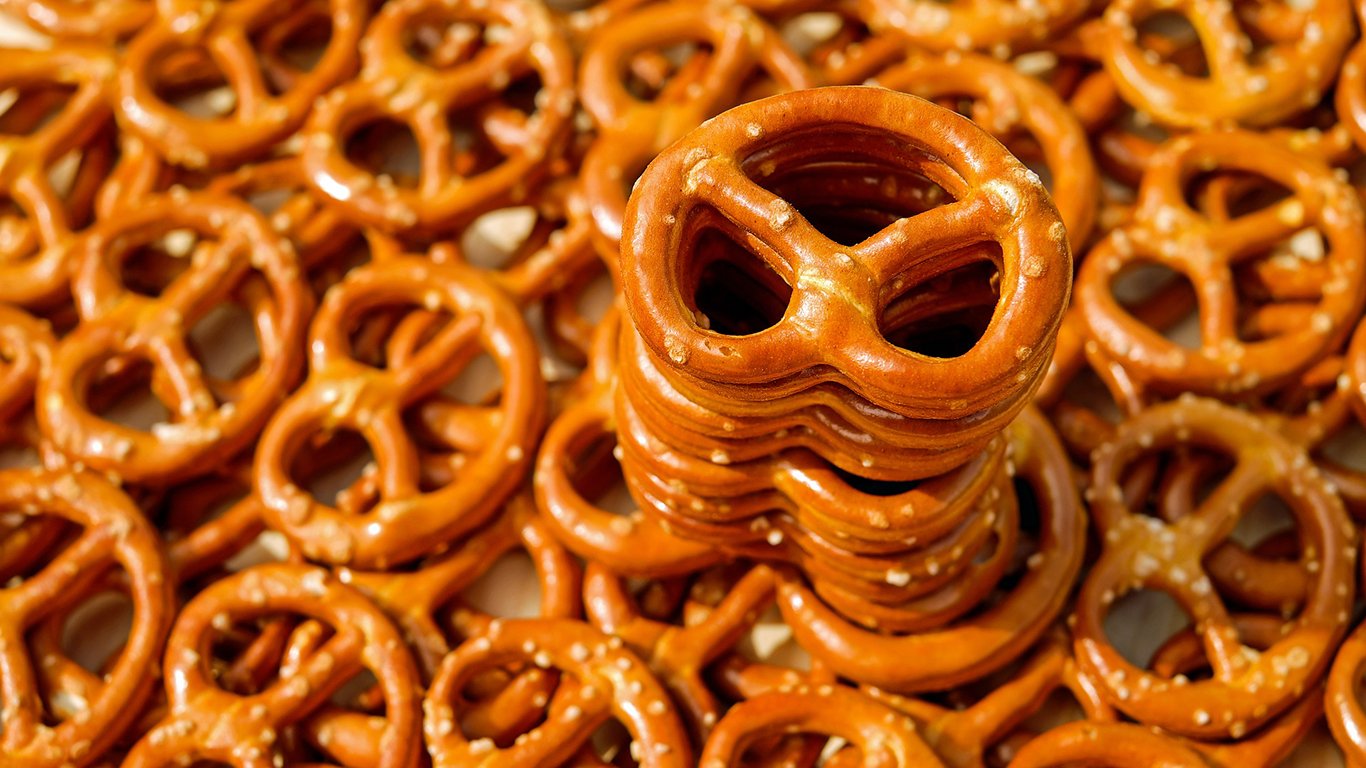
11. Pretzels
Pretzels are much healthier than, say, Doritos, according to Maycock. But they are still heavily processed, he noted. Pretzels are much smaller, which poses a risk of overeating if you don’t exercise portion control. Some brands may contain a significant amount of sodium — in just 1 ounce, 359 mg of salt (the American Heart Association recommends a maximum daily sodium intake of no more than 2,300 mg). High sodium intake is one of several dangerous things experts have linked to heart disease.
[in-text-ad]
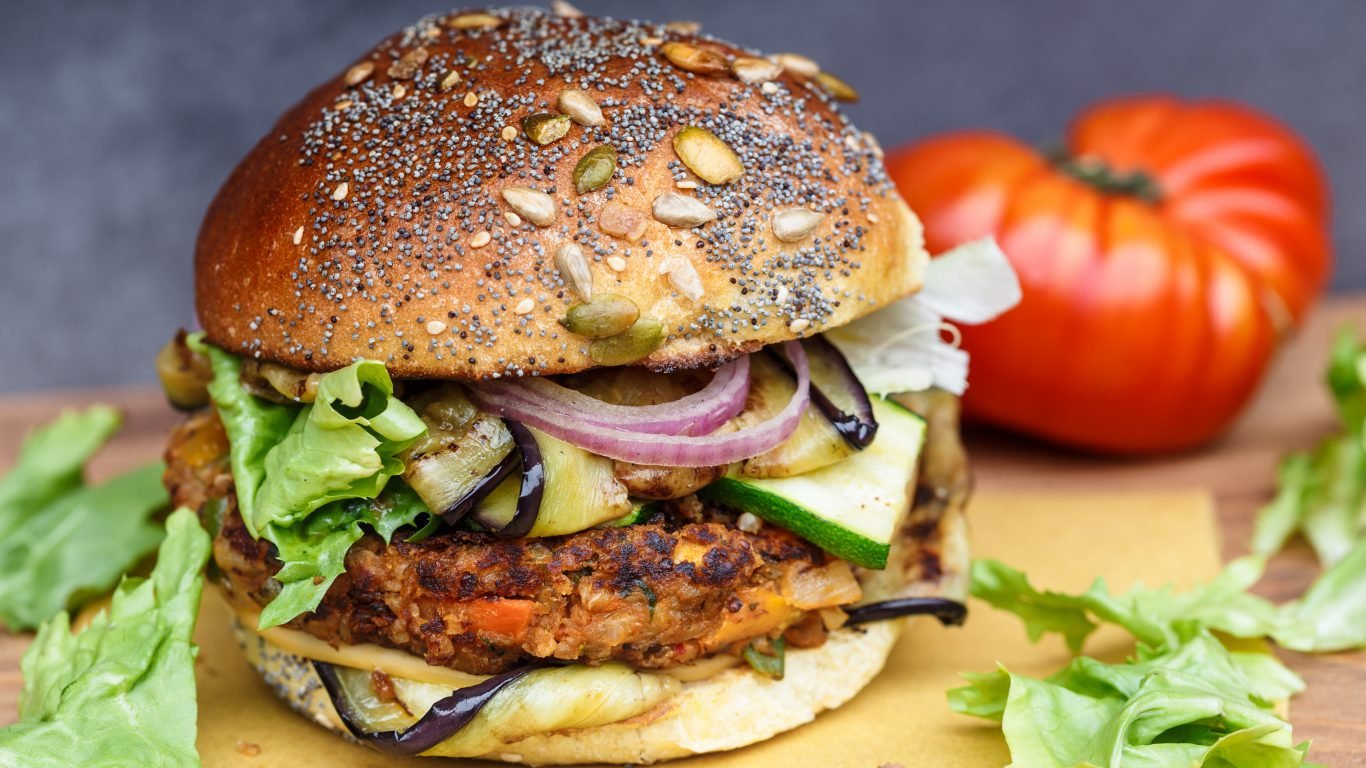
12. Veggie burgers
Veggie burgers may not be red meat, but they rarely contain green vegetables, either. “They are usually made of starch — beans and other grains,” Maher said. The protein content in veggie burgers can vary greatly, too. In some, the protein source is actually soy protein isolate, which is basically dry soybeans without the sugar and fiber. Veggie burgers are also typically packed with sodium — as much as 500 mg per serving, according to Consumer Reports. That’s about a fifth of the recommended daily limit, which is 2,300 mg of sodium.

13. Almond milk
Almonds are healthy nuts that are rich in fiber, protein, healthy fats, and magnesium, but almond milk is not. Most of the content has been lost during the manufacturing process, and sugars and artificial sweeteners have been added. Almond milk, which has significantly fewer calories than regular milk, is often fortified with calcium, but check the ingredients label to make sure.
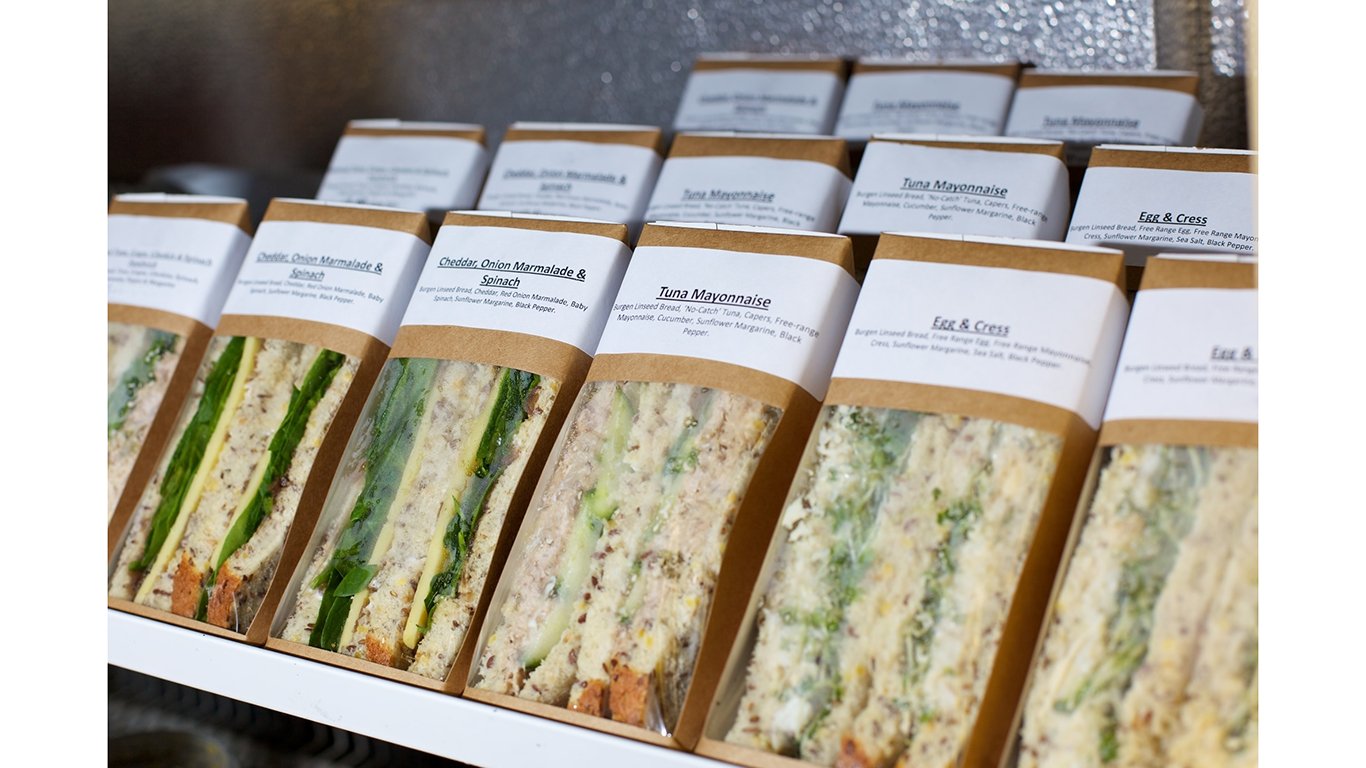
14. Pre-packaged sandwiches
Pre-packaged sandwiches are a popular item at gas stations, but some have been found to have high levels of salt, fat, and sugar. Some sandwiches, especially those loaded with mayonnaise, are basically a high-calorie bomb. Avoid sandwiches with cold cuts, as they are full of nitrates and sodium. Also, pre-packaged sandwiches are often a day or more old. Depending on how they are stored, such sandwiches could be among the 20 foods that spoil much faster than you think.
[in-text-ad-2]
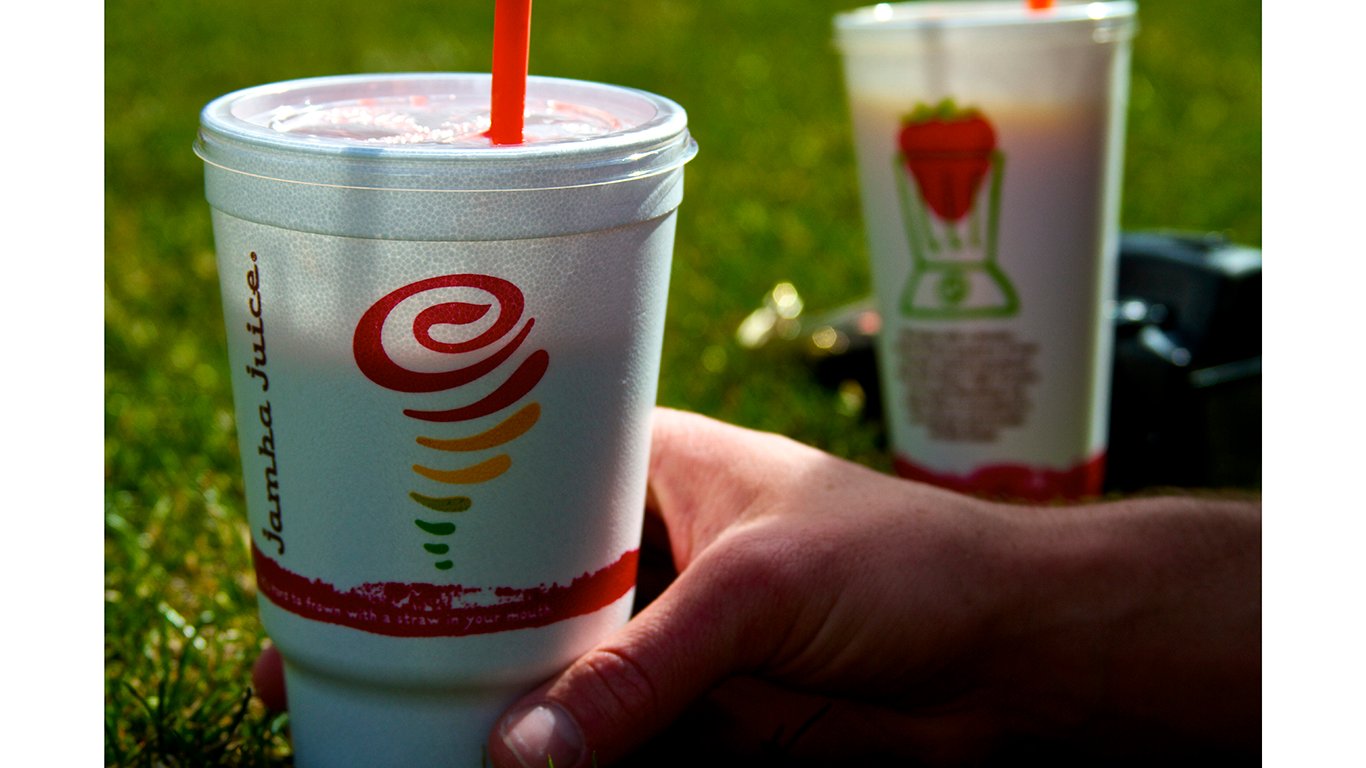
15. Commercial smoothies
The problem with commercial smoothies is that the have too many fruits and very little if any at all of vegetables. That is way too much fruit at once, Treat said. You have to add some vegetables for better nutritional value, Maher added. “Get some protein, too,” she noted. Striking a balance between vegetables, fruits, protein, and fat is key to making a healthy smoothie, she explained. If you really like your smoothies, a good rule of thumb is to keep it simple — vegetables and fruits, some milk or yogurt for protein, and certainly no ice cream. Some commercial smoothies are also loaded with sugar — anywhere from 50 to 70 grams of sugar in a small 16 ounce cup. Sugar is so unhealthy that a recent study claimed that labeling added sugar content, not just the total amount, could prevent thousands of lives.
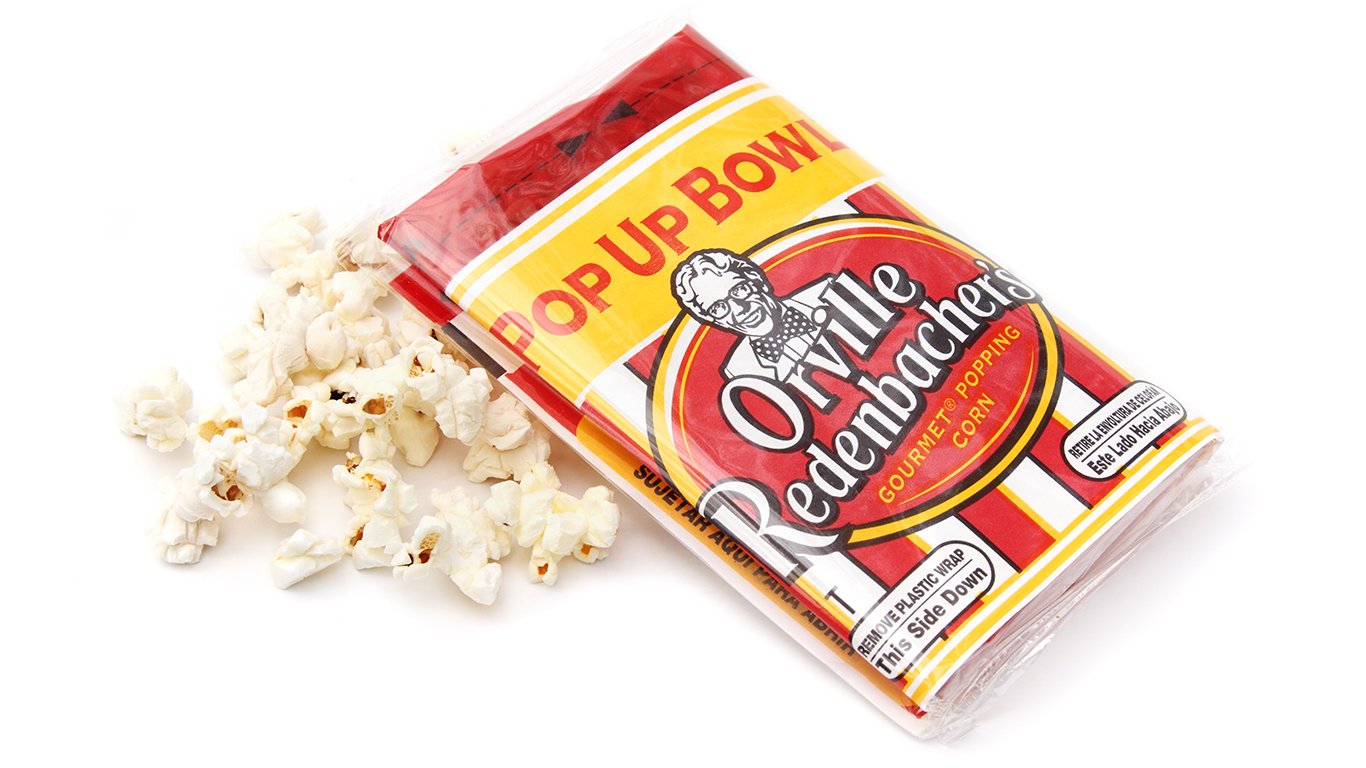
16. Microwave popcorn
Popcorn itself is not a terrible snack at all, Maycock said. The problem is when they are laced with butter, which is almost always the case with popcorn at the movies and many versions you see at the store. With the butter come trans fats, which have been linked to higher risk of developing heart disease, stroke, and diabetes.
[in-text-ad]
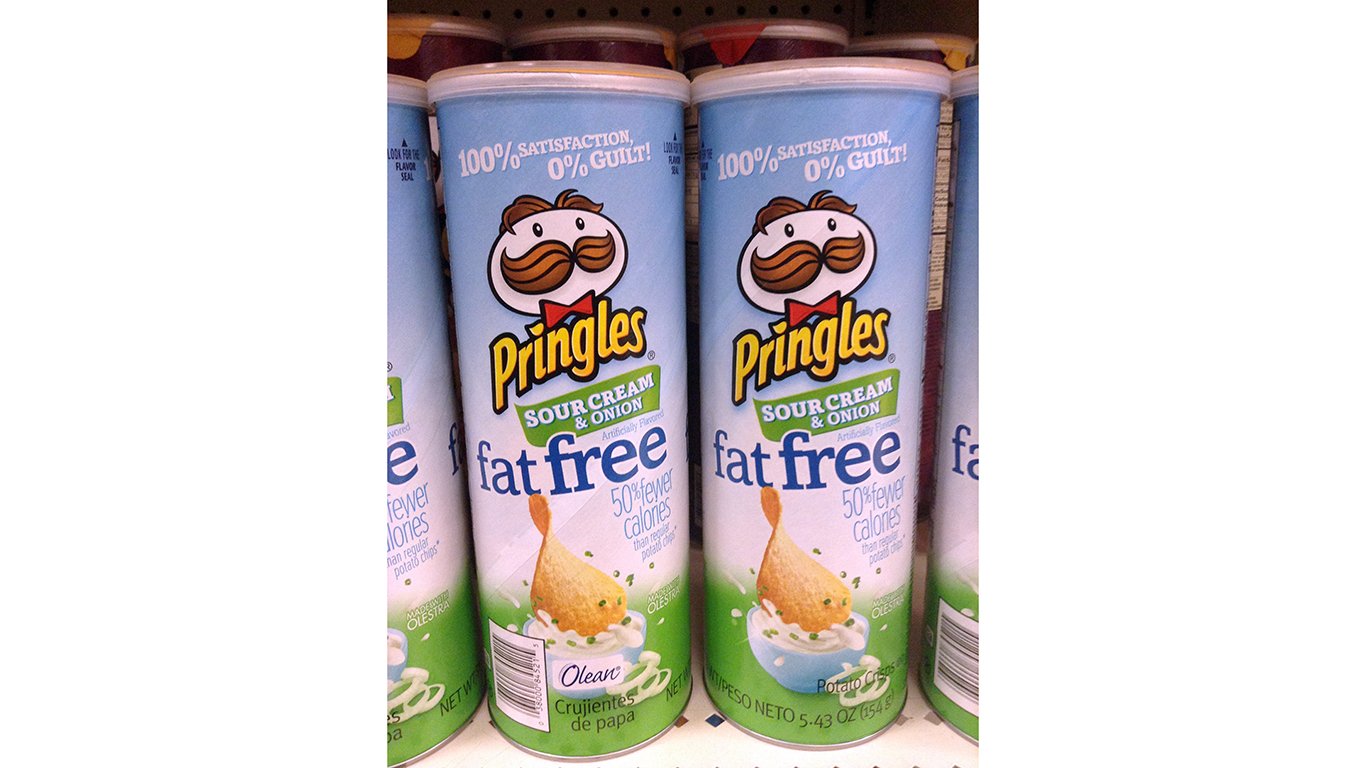
17. Fat-free foods
Many companies process their products to remove the fat, but the problem is that much of the flavor is lost, too — so they add salt, artificial sweeteners, or sugar instead, Maher said. Flour and other thickeners, which can add calories, are often added as well. Read the labels. If you see a lot of sugar and additives, put the product down and walk away. Also walk away if you think of buying any of these foods and drinks that are only believed to be healthy.
Sponsored: Attention Savvy Investors: Speak to 3 Financial Experts – FREE
Ever wanted an extra set of eyes on an investment you’re considering? Now you can speak with up to 3 financial experts in your area for FREE. By simply
clicking here you can begin to match with financial professionals who can help guide you through the financial decisions you’re making. And the best part? The first conversation with them is free.
Click here to match with up to 3 financial pros who would be excited to help you make financial decisions.
Thank you for reading! Have some feedback for us?
Contact the 24/7 Wall St. editorial team.
 24/7 Wall St.
24/7 Wall St.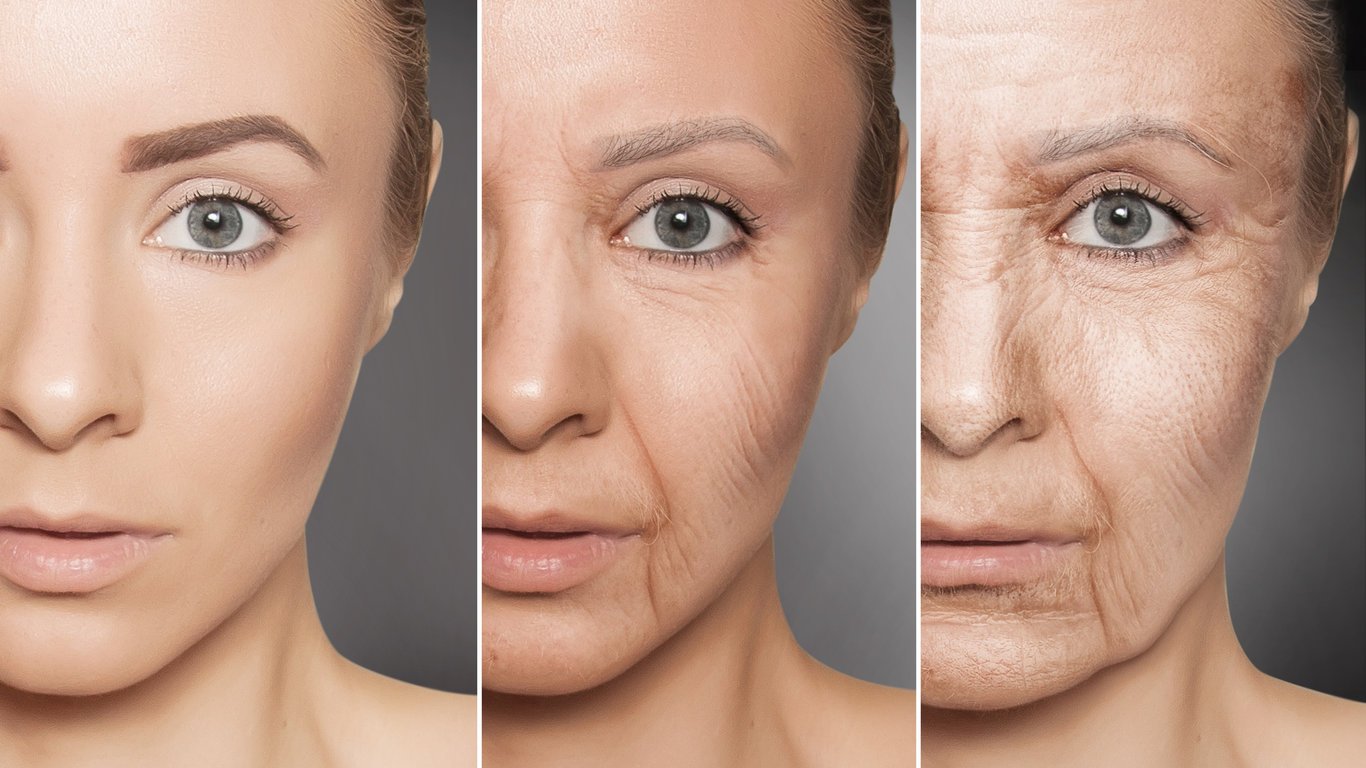 24/7 Wall St.
24/7 Wall St.
